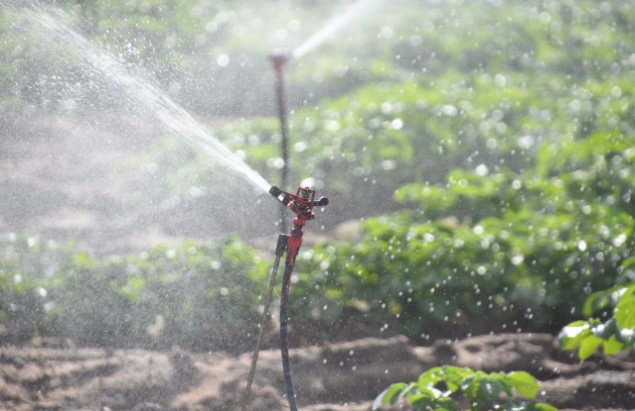- AdP
- SUSTAINABILITY
- Innovation
SERPIC
SERPIC

The SERPIC - Sustainable Electrochemical Reduction of contaminants of emerging concern and Pathogens in WWTP effluent for Irrigation of Crops project aims to investigate and minimize the spread of contaminants of emerging concern (CECs) in WWTP effluents. Focusing on the safety of wastewater reuse for agricultural irrigation within food production, and on the discharge of higher quality wastewater, this project relies on three main objectives:
- Investigate the spread and transformation of CECs, antibiotic resistant bacteria (ARB), and antibiotic resistance genes (ARG) in water;
- Develop an innovative solution for advanced wastewater treatment, based on a multi-barrier technology combined with electrochemically produced oxidants, while using solar energy as the main provider of electrical power;
- Elaborate monitoring methodologies and tools, develop an environmental and health risk assessment methodology and implement new wastewater reuse concepts, thus contributing to the improvement of policies and decision-making processes regarding water reuse in agriculture.
To validate the effectiveness of the proposed technology, a prototype plant will be set up on-site in Ciudad Real, Spain. In parallel, sampling of the irrigation water, soil, and grown crops will be conducted. This prototype will use regenerative, sustainable energy, generated by photovoltaic modules.
Coordinated by the Fraunhofer Institute of Germany, this project will be developed in collaboration with 7 partners from Europe and South Africa, including AdP Valor and University of Porto from Portugal, University of Castilla-La-Mancha from Spain, University of Ferrara from Italy, the Norwegian Institute for Water Research, Stellenbosch University from South Africa and SolarSpring company from Germany.
Within the scope of this project, AdP Valor will participate in the replication and dissemination of this project and its results, namely within the AdP Group. Moreover, AdP Valor will also collaborate in the development of the methodology for the environmental and health risk assessment.
Further info: https://www.serpic-project.eu/
Budget: 1 200 000 EUR
Starting date: September 2021
Project duration: 36 months
Funded by:

